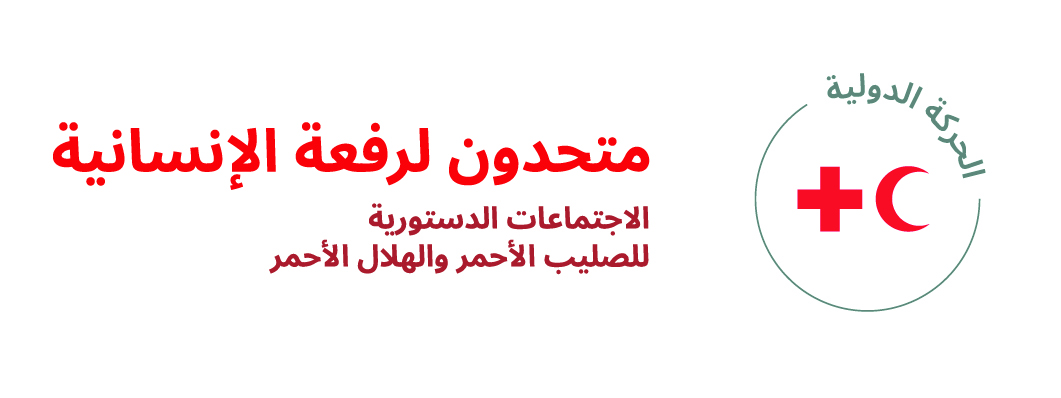الإجراءات المتخذة:
The Austrian Red Cross is part of the transnational working group on Dead Migrants and Information to their families. The German Red Cross – also part of the working group – has already submitted the following report regarding the activities and objectives of the working group, which also applies to the Austrian Red Cross as member of the working group and may in accordance with the German Red Cross be submitted here again:
Prior to the 32nd International Conference of the Red Cross and Red Crescent in December 2015, in order to prepare the Pledge and take forward its commitments, a number of European National Societies agreed at the European RFL Annual Meeting in 2015 (Dublin, 27-29 May 2015) to establish a transnational working group on Dead Migrants and Information to their families to map key actors, share learning and find common solutions. The Working Group was established and is currently composed of representatives from 8 European National Societies (Austria, Croatia, Germany, Italy, Montenegro, Netherlands, Switzerland, United Kingdom), who have signed the Pledge and by ICRC representatives. In addition the Working Group has been as inclusive as possible and has included other National Societies who have not signed the pledge but have a significant stake in the discussion (e.g. Malta, Spain, Greece).
The group is coordinated by a rotating chair system. Based on National Societies’ capacity, the group aims to have a co-chair system with coordination being divided between a representative from a country where many searching families are (Destination) and a representative from a country facing a high number of deceased migrants (Arrival).
In line with the Pledge on Dead Migrants and Information to their families, the transnational Working Group defined the following objectives:
- Clarify key stakeholders and the process for identification and registration of deceased migrants and communication to their families in each country
- Develop potential ways of collaboration between relevant authorities and each National Society to assist families in finding missing or deceased family members
- Identify concrete channels of communications with the concerned families regarding the fate of their deceased family members.
- Develop protocols and gather best practices and tools to support families of deceased migrants across Europe.
Achievements so far:
Objective 1: Clarify key stakeholders and the process for identification and registration of deceased migrants and communication to their families in each country
Under the lead of the German Red Cross Tracing Service (2016-2018) a comprehensive mapping survey with 9 chapters has been developed including questions regarding: national overview, Data Base – data of the missing persons/unidentified bodies: storage, exchange & access, preconditions of processing a missing file with the authorities in charge, retrieval and transfer of bodies, identification procedures, DNA and DNA from relatives, release, death registration, burial, exhumation and repatriation.
10 National Societies in Europe completed the survey until March 2019 (amongst others Austria, Germany, Greece, Italy, Netherlands, Switzerland, United Kingdom). In addition Australian Red Cross and Canadian Red Cross participated in the mapping survey.
Surveys conducted by the National Societies in Europe were represented at the Working Group meeting in Athens in October 2018.
In order to produce a European snapshot report of the stakeholders and processes to understand how information on deceased migrants are stored and analysed as well as what avenues families of the missing have to find information, a 1-page-document has been created for the procedures in Greece and Italy that could be used by each NS for training and decision making processes.
Objective 2: Develop potential ways of collaboration between relevant authorities and each National Society to assist families in finding missing or deceased family members
All working group members have started conversations with their relevant authorities. In some cases this has resulted in a formal agreement (e.g. Italy), in others in the Government signing the pledge (e.g. Switzerland) and in other context in a collaboration to support families of the missing and send DNA abroad (e.g. Germany).
German Red Cross – Tracing Service has established contact with the German authorities in charge and the “National Database on Missing and Unidentified Persons” in order to come to an agreement about coordination and cooperation on behalf of the families looking for a missing family member feared to have died on the way to Europe.
Objective 4: Develop protocols and gather best practices and tools to support families of deceased migrants across Europe.
All working group members have received some forms of training in the collection of ante mortem data. Some have organised trainings for their staff and volunteers (e.g. Germany and Switzerland).
The working group has enabled information sharing and the gathering of best practices and tools. These have been shared trough the meetings, teleconferences and via Family Links Extranet.
A number of actions remain outstanding and will need to be achieved or reviewed even after the 33th International Conference of the Red Cross and Red Crescent. In recognition of these tasks the working group has committed to continue its work.



